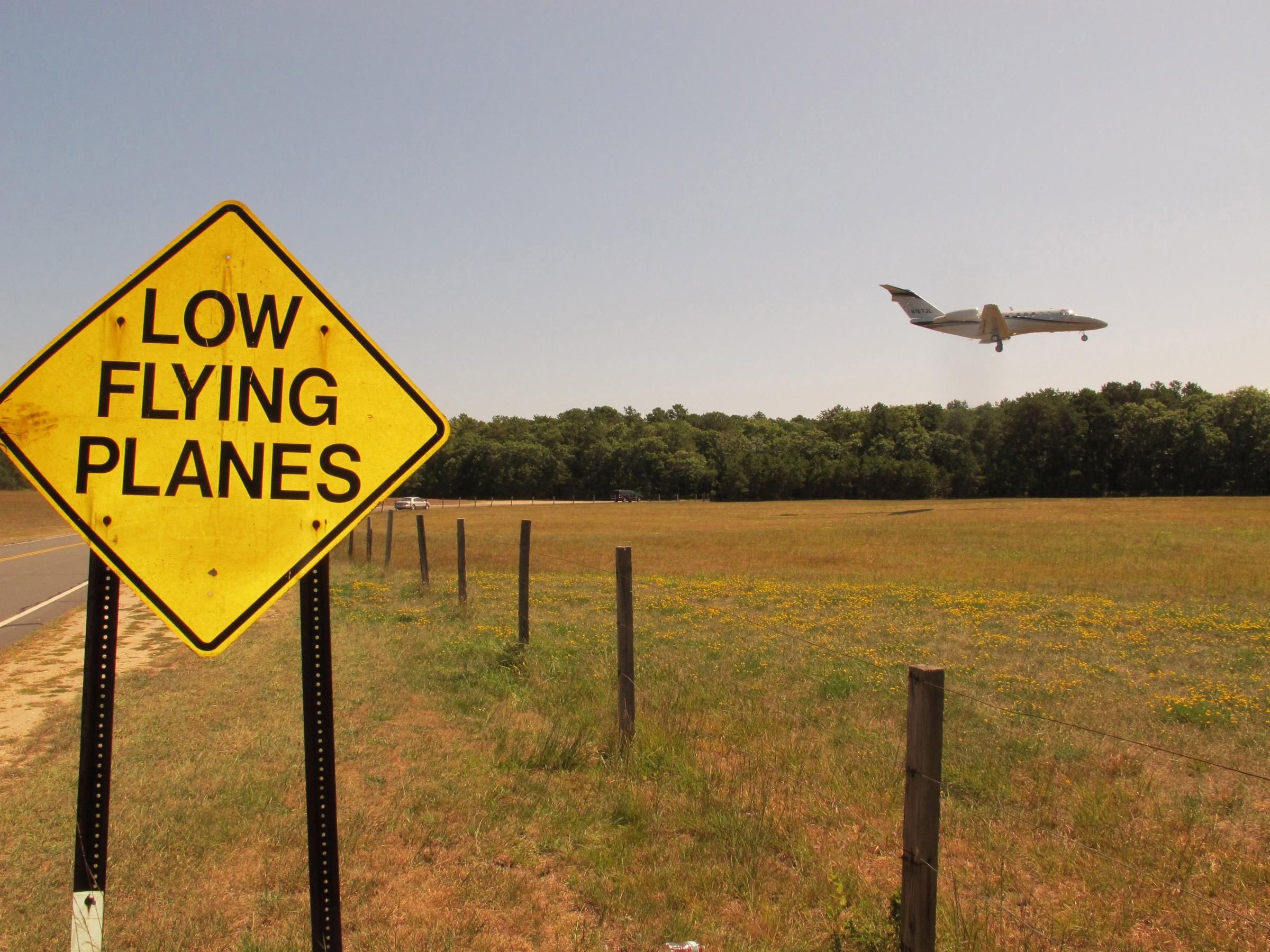
A broad spectrum of aviation groups is opposing a congressional bill that would allow local authorities to set noise standards at general aviation airports. In a letter to House leaders, nine groups representing operators that use municipal, regional and major airports say H.R. 5423, the Aircraft Noise Reduction Act, would undermine the federal authority that governs aviation policy. “This legislation seeks to impose restrictions at the local level, thereby undercutting the utility and safety of thousands of airports across our nation and reversing course on the need to regulate aviation matters at the federal level, which Congress has recognized since the 1920s,” the letter reads. It was sent to leaders of the House Committee on Transportation and Infrastructure and its aviation subcommittee.
The Department of Transportation, through the FAA, has full authority over aviation facilities and policy and the letter says the bill will compromise that authority. The Airport Noise and Capacity Act (ANCA), enacted in 1990, governs noise levels at airports and the groups say it “provides an effective process” for assessing and adjudicating those issues. The bill, they say, would allow local authorities to restrict access by commercial aircraft and imperil a host of vital services and businesses. It would also force commercial operators to use large airports, adding to the already significant congestion at many of them. “Uniform federal authority is an essential predicate to the safe and efficient administration of the National Airspace System,” the letter reads. “Any changes to this well-established process will open the door to a tangle of conflicting local regulations, encouraging inefficiencies and jeopardizing safety.”



































Sure. Let’s let every hamlet and village in the nation set their own rules for aircraft. They already (think that they) do that for foreign policy, immigration, nuclear weapons and power, gun control, otherwise-unlawful drugs, etc. Being “woke” is all about anarchy. And totalitarianism. So, how could this misguided but purposeful proposal surprise anyone?
I guess we need “sanctuary cities” for airplanes. What are the chances?
How about if we let every city set their own noise limits on every car or truck that passes through their town?
Imagine having to plan a route that avoids every Podunk “noise trap”–the economy would come to a halt.
Like most pilots, I’m not in favor of more Federal power–but there needs to be SOME uniform standard.
So….
This means local communities will just set up an automated ticketing system consisting of a $90 Stratux receiver and a microphone. The best part is that ANY community can set ANY sound limit and ANY violation amount they wish and you won’t even know till you get their bill in the mail.
Brilliant.
“I guess we need “sanctuary cities” for airplanes. What are the chances?”
Come to Virginia. We’ll take it on for you.
Well, where are the couple of folks that were whining about the Seattle issue last week and the Pvt Pilot from VA that was all anti-FAA because they routed thousands of jets across his roof at low level? The FAA, and any other Federal or State Regulatory agency is liked, feared, and hated, especially when one of their staff knocks on “your door”. That aside, one comment hit it on the head, there has to be some uniform standard. Why are trucking rules governed by the ICC and not every podunk town in America? Because that stops every little town from setting up check points on the interstate every few miles at the town line to set up revenue sources. The NIMBY crowd will be all over this. Airports that were out in the middle of no where are now often surrounded by housing developments that grew up in farm fields by the airport and now want to complain about the noise. The example airport in this article was surrounded by NOTHING for years until the Hamptons became affordable for more folks and now look.
Folks, not all of those noisy old aircraft are jetsetting zillionaires. Most are used by companies to make money, create jobs, and fund paychecks. Not always, but most of the time. Little towns need to think about that when they start restricting access. Irritate the folks that own those aircraft and they are financially able to move elsewhere and take their money and jobs with them. That includes the local jobs at the airport as well.
The airport mentioned 10 years ago would take about 5000 aircrafts landing and taking off,
Now due to the economy and how the area (the Hamptons) is a destination it is air NON-STOP traffic
over 4 months a year and have over 35,000, landings and take-offs Over 95% of these landings are from helicopters and Sea-planes charter companies which are registered out of state. It is a fact that only 1 in 3 people who depart these crafts actually stay in the town of Easthamton. The noise coming from these double engine helicopters and sea-planes is out of control not to mention the pollution they bring to the airfield which is also the main aquifer for the area. This small airport is broken, near miss collisions have been filed with the FAA and the people below the approach and takeoff need to get there quality of life back to what it was over 10 years ago even those that live over 20 miles away from the airport.
I could care less about “the Hamptons” being visited by commoners.
Call me when you’re ready to restrict traffic on the LIE.
This legislation is no less than an existential threat to GA. Most towns would love that the airfields in their towns be gone and this, this bill would not only let them legislate noise but is a de facto means to strangle any and all of them out of existence.
Motivation?
• Ratable Density – Housing units, malls, whses on an airport property versus the paltry sum an airport produces; an FBO, some below min wage line boys/girls, flight instructors and the Ptomaine Airport Cafe with the permanent ‘Under New Management’ sign in the window barely scratching out a meager existence.
• The mayor, council members, freeholders etc no longer need to listen to hundreds of people complain about pollution, noise and a plane crashing in their neighborhoods and what they’re gonna do about it.
• There are more people than ever that can afford to pay a couple hundred to fly to the Hamptons for the weekend, every weekend, instead of sitting in bumper to bumper. Way, way, way more people than ever can’t afford it even one weekend a year. Call it resentment, jealousy, whatever, but put enough ants on it they will devour an elephant or make it wish it were dead and on that note,
TO ALL
HAPPY HANUKKAH, MERRY CHRISTMAS
The Air Commerce Act of 1926 established Federal control of aviation standards, for the very purpose of establishing uniform, reasonable standards relating to aviation.
Now, these “Quiet Skies” lunatics would upend the whole thing ng and allow the local establishment of arbitrary, capricious (and malicious) airport and airspace regulations and use policies. It would be open season on general aviation and an invitation to every corrupt politician and real estate developer to raid and destroy our national airport system.
Just when you think that Congress can’t get any dumber, they continue to amaze. In addition to creating chaos at the local airport, what does Congress think this will do in the future when all those UAMs begin buzzing (pun intended) around cities? David was right; most of the airports in the nation were originally located out away from the cities and towns. But, commerce follows airports, and the towns have grown up around the airports. Denver’s DIA is a classic example. When it was originally built, citizens complained that it was closer to Kansas than downtown Denver. Now they are beginning to surround the airport and are complaining about the noise. If this goes through, you will see the saga of Santa Monica being repeated all over the country.
I greatly dislike regulations … any regulations … so I won’t get into details about the exact question raised by this article other than to say “of course local arbitrary rules by every pack of clueless local human predators is a horrible idea”.
But this raises a different question for me, one that I’ve wondered about for decades. That is … why do airplane engines make so much more noise than automobile engines with similar horsepower? I have to admit that I don’t know.
My guess is the following. Airplanes can’t afford to add extra weight. Virtually all airplanes already have a load carrying limit that is smaller than desirable, and adding extra weight for mufflers and and other gizmos would reduce load carrying capability. Furthermore, adding extra space in the engine compartments for mufflers and catalytic converters and other gizmos would make the engine compartments larger, which adds even more weight and therefore more drag. And so … I’m just guessing here … it became standard operating procedure to omit mufflers (and everything else that can be omitted) from airplane designs.
But … that’s just a guess. If it was possible to make airplanes quiet at minimal cost in dollars and mass, that would be great. But I’m guessing airplanes are louder because they need to be, or would be greatly hampered.
As a conclusion, I’ll just add the following, which is more along the lines of a wish that is unfortunately impractical to implement in the real world. I wish everyone with a car or airplane or any other device that was louder and more annoying to others ON PURPOSE would be made as quiet as REASONABLY practical by the owner. When I think about this airplane noise issue, I am reminded that about 1% (or maybe 0.1%) of cars are made purposely loud by their owners, and that is indeed very annoying. The bottom line, I wish people on both sides of noise issues would simply be understanding and considerate as they can be … but also not be “put out of business or pleasure” when they are not being unreasonable or inconsiderate. It is not even possible to write “uniform standards or regulations” that specify what is unreasonable or inconsiderate for every situation, device and case.
Exhaust mufflers don’t affect propeller noise, which comprises much of what you hear. This is why even electric airplanes are not very quiet.